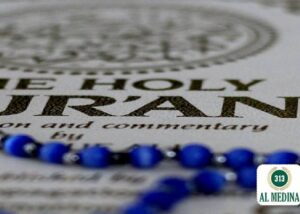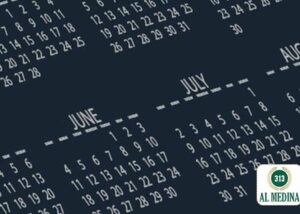Quran
Hadith
Islamic Text
In Sahih Muslim the Prophet ﷺ mentioned the possibility of being forgiven the sins of the previous year as a reward for fasting on the 10th of Muharram?
صِيَامُ يَوْمِ عَرَفَةَ، أَحْتَسِبُ عَلَى اللهِ أَنْ يُكَفِّرَ السَّنَةَ الَّتِي قَبْلَهُ، وَالسَّنَةَ الَّتِي بَعْدَهُ، وَصِيَامُ يَوْمِ عَاشُورَاءَ، أَحْتَسِبُ عَلَى اللهِ أَنْ يُكَفِّرَ السَّنَةَ الَّتِي قَبْلَهُ
The Messenger of Allah ﷺ said, ‘I hope from Allah (Most High) that fasting on the Day of Arafah expiates for the sins of the year before it and the year after it. And I hope from Allah (Most High) that fasting on the Day of Ashura (10th Muharram) expiates for the sins of the year before it.’ (Sahih Muslim, 1162 – 196).
We do not always have explicit Hadith narrations specifying the reward of every good deed. This does not mean there is no reward for the specific deed. Rather it means we refer to the more generic rewards mentioned in Quran and Hadith and cannot be more specific.
Amongst the rewards for fasting on the Day of Ashura is forgiveness of sins, there are many other rewards too, the general rewards related to fasting are also applicable here. It is important to keep in mind that most Hadith that speak of sins being forgiven due to particular acts of piety usually refer to minor sins and not major sins.
The Hadith above is authentic without doubt. Since all Marfoo Hadith narrations in Bukhari and Muslim are Sahih:
جَمِيع مَا حكم مُسلم بِصِحَّتِهِ من هَذَا الْكتاب فَهُوَ مَقْطُوع بِصِحَّتِهِ وَالْعلم النظري حَاصِل بِصِحَّتِهِ فِي نفس الْأَمر وَهَكَذَا مَا حكم البُخَارِيّ بِصِحَّتِهِ فِي كِتَابه وَذَلِكَ لِأَن الْأمة تلقت ذَلِك بِالْقبُولِ سوى من لَا يعْتد بِخِلَافِهِ ووفاقه فِي الْإِجْمَاع. (صيانة صحيح مسلم)
Everything that (Imam) Muslim considered to be Sahih of this book is undoubtedly Sahih, and it leads to contemplative certainty due to its authenticity. Likewise, everything that (Imam) al-Bukhari considered to be Sahih in his book (is Sahih), because the Ummah has accepted that reality (the authenticity of Bukhari and Muslim) with agreement. With the exception of a few, whose acceptance or disagreement does not affect the consensus. (Imam Ibn Salah, Siyanatu Sahih Muslim).
If a person does decide to fast on the Day of Ashura (tenth Muharram) then he or she should also fast the day before (ninth) or the day after (eleventh) too. See the link below for details.
And Allah Most High Knows Best.
See also:
Fasting the day before and after Ashura
Are all Hadith in Bukhari and Muslim Sahih?
See also video:






